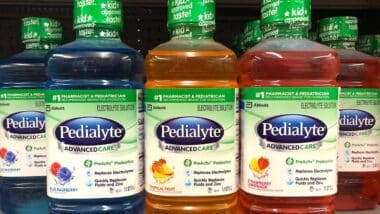 Actavis Plc has asked an appeals court to decide whether it should be allowed to pull an older version of Namenda, a top-selling Alzheimer’s drug, from the shelves before generic versions of the drug hit the market.
Actavis Plc has asked an appeals court to decide whether it should be allowed to pull an older version of Namenda, a top-selling Alzheimer’s drug, from the shelves before generic versions of the drug hit the market.
New York Attorney General Eric Schneiderman sued Actavis last year after the pharmaceutical company announced it would discontinue Namenda IR following the release of Namenda XR, which is taken once daily instead of twice a day. Schneiderman’s antitrust lawsuit alleged Actavis intended to force patients to switch to the new version of the Alzheimer’s medication and stifle competition from drug makers planning to release generic versions of Namenda IR later this year.
In December 2014, U.S. District Judge Robert Sweet ordered Actavis to keep Namenda IR on the market, and Actavis filed an appeal seeking to overturn the order. On Monday, the 2nd U.S. Circuit Court of Appeals heard arguments from attorneys representing Actavis and New York State about whether drug makers have an obligation to keep a drug on the market after a newer version is released.
The issue of “product hopping,” or the practice of drug makers releasing new versions of drugs that do not offer therapeutic advantages prior to facing generic competition, has not yet been addressed by antitrust laws or appellate rulings. Product hopping essentially forces consumers to switch to the reformulated brand-name drug, allowing the manufacturer to preserve its dominance in the market and preventing consumers from being able to purchase less expensive generic medications.
Under the laws of nearly 30 states, pharmacists are required to substitute a generic drug for a brand-name medication if an exact equivalent is available. Actavis argues that it would experience close to $200 million in lost sales once the generic versions of Namenda IR entered the market if it were not allowed to pull the drug. Further, Actavis argues that it is not illegal to discontinue the older version of the drug. On the other hand, the attorneys representing New York argue that the only business reason to pull Namenda IR is to stifle competition and should be considered a violation of antitrust laws.
Although the three-judge panel gave no indication Monday of how they would rule, it is evident that the appellate court decision will have a significant impact on the pharmaceutical industry. Antitrust lawyers and legal experts are closely following the Namenda product hopping litigation.
“This is a case of great significance for branded and generic manufacturers and purchasers of prescription drugs,” attorney Ryan Marth of Robins Kaplan LLP said. “The stakes are high for all involved because drugs that are subject to product-hopping allegations are those that are the most highly profitable for the branded firms. Because of all that is at stake, an affirmance by the Second Circuit may encourage similar suits by competitors and purchasers and may even prompt the FTC to pursue its own case under its Section 5 authority.”
The Actavis Namenda Antitrust Lawsuit is People of the State of New York v. Actavis Plc, et al., Case No 14-4624, in the U.S. Court of Appeals for the 2nd Circuit.
ATTORNEY ADVERTISING
Top Class Actions is a Proud Member of the American Bar Association
LEGAL INFORMATION IS NOT LEGAL ADVICE
Top Class Actions Legal Statement
©2008 – 2025 Top Class Actions® LLC
Various Trademarks held by their respective owners
This website is not intended for viewing or usage by European Union citizens.















One thought on Appeals Court Hears Arguments in Namenda Antitrust Lawsuit
I have a 2004 Explorer with a cracked tailgate. I saw there is a class action. Please contact me.Karen peterson. [email protected]